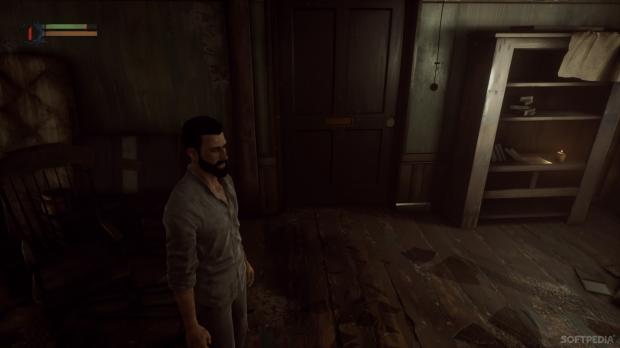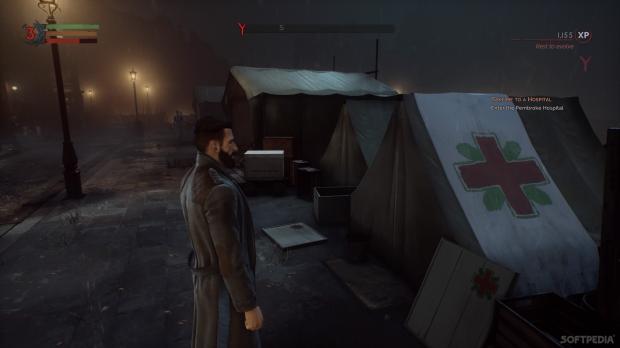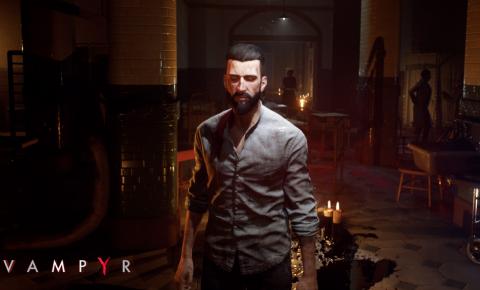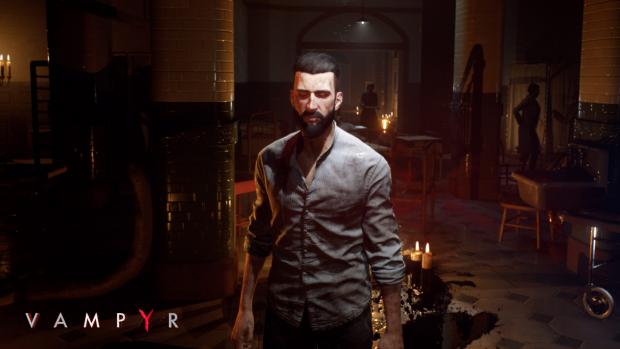Vampyr is the progeny of the same studio that brought us Life Is Strange, a melodramatic sci-fi adventure game or, as many call it – a paranormal teen drama. After working with Japanese publisher Square Enix for the first Life Is Strange chapters, the fine folks at Dontnod have been contracted by Focus Home Interactive to create a story about … vampires.
When the game was first announced, I had a bit of a deja vu moment and thought Focus Home plans to make a spiritual successor of one of the best RPGs with vampires – Vampire: The Masquerade. Even the trailers the publisher released before launch pointed to a combat-heavy game where your vampiric skills would play a major role in the protagonist's survival.
A great combat system backed by an interesting story could have made Vampyr a financial success for Focus Home, but I have been reluctant prior to its launch since I didn't see any advertising for the game.
So, I didn't have high expectations from Vampyr knowing that if the publisher doesn't trust in its own game and spend some money in a marketing campaign, there's no way that the game could be good.
Well, the good news is Vampyr is not a bad game. Unfortunately, it's not a great game either, so depending on what you expect from such a game, you might be mildly disappointed, but there are definitely some good aspects about Vampyr that we'll discuss further.
Story
Dontnod is clearly a studio with pedigree after the success of the Life Is Strange, so I had hopes regarding Vampyr knowing that the same folks are at the helm. The game starts quite abruptly with you playing the role of Dr. Jonathan Reid, who's bitten by a vampire while roaming the streets of London.
But the drama isn't fully complete until the protagonist unknowingly bites and kills his own sister who's been looking for him worried that he hasn't returned home. It's the leitmotiv that Dontnod lays out in front of the audience, so each decision Dr. Reid will take going forward will bear the guilt of having killed his own sister during his metamorphosis.



Although Vampyr starts in full force, it immediately tones down to the point that it becomes really boring. Instead of introducing the NPCs gradually as the game unfolds, you're put in the position to learn each and everyone's personal story for the next few hours.
Vampyr's NPCs are the bread and butter (literally) of the game, as you'll have to decided who lives and who dies, according to your own beliefs or their actions. It's quite interesting that the first hours of gameplay don't really focus on Reid's story, but rather on the characters from the various areas of London.
It's through them that Dr. Reid fulfills his destiny, so it makes sense for the protagonist to want to know them as best as possible. Some of these people are good, while other are plain brutes, but many are morally grey, and that's where you'll have difficulties taking decisions.
The main plot is perfectly paced from the beginning and up to mid-game, but then it's slowed down and the outcome seems rushed. One other thing that I didn't liked is how the start of the game solely focuses on conversations with the NPCs, as opposed to the rest where you're pretty much free to explore and do story or side quests.
However, I'll give Dontnod props for making every NPC in the game interesting enough to make you want to learn more about them. Also, the side quests they're offering are really meaningful and start to make even more sense the moment you learn their secrets.
Learning what kind of persons these NPCs really are is absolutely mandatory if you're thinking of killing them for the amount of experience their blood offer you. Since these NPCs are part of intricately connected communities, it's very important to maintain a balance when it comes to deciding who will live and who will quench your blood thirst. One mistake is enough to send the entire pyramid crumbling down and make your playthrough harder than it should be.
Vampyr is a perpetual moral conflict where each decision you make has a consequence at either micro or macro level. Unfortunately, the interesting isn't supported by a strong combat system and RPG elements to make Vampyr a great game.
Combat and gameplay mechanics
What should have been the bread and butter of an RPG such as Vampyr is in fact the main issue with the game. For some reason, developers have decided that the protagonist should move and fight like a regular human being even after becoming a vampire.
It's true that you have a couple of vampire powers at your disposal, but they don't feel like supernatural and certainly don't have visuals to suggest that. Basically, combat is limited to locking on and dodging around an enemy while bashing it with your melee weapon. From the entire tree of supernatural powers that Reid can unlock, only two or three are useful in combat, so the rest seem like fillers.



Almost every encounter with an enemy (except bosses) follow the same scenario: hit it with Rake for blood, use club until it's stunned, then Bite to replenish blood. Rinse and repeat.
Another aspect that falls short compared to the narrative is the crafting system where you can upgrade the weapons you find using mats that drop from monsters, chests and other objects throughout the world.
Even though you'll almost always fight enemies that are at least 3-4 level higher than you, using the combat tactic described above will get your through most of the fights (even those where you fight multiple enemies). Due to the fact that level progression is strongly tied to the story and side quests, which are the only ones giving enough experience to allow you to level up, you'll have to do some compromises if you find the game a bit too difficult to your liking.
All NPCs in the game can be killed and their blood added to your experience bar. The more prestigious an NPC is, the more XP you'll get. In order to benefit from the full quality of an NPC's blood, you must learn the secrets it hides. Most of these secrets can be found by doing the side quests they give you, but sometimes you can fail them if you choose the wrong answer during a conversation with that particular NPC.
The quickest way to level up is to feed on NPCs killing them, which could potentially lower the stability of the district they belong to. Lower the stability of a district too much and the rest of the NPCs living there will start suffering as well and will eventually go missing. But the worst thing is feral monsters will start roaming those unstable districts making your exploration harder and more time consuming.
Speaking of stability, Dontnod have implemented a system meant to let you manage the wellness of a district. Many of the citizens in these districts suffer from various diseases, which destabilize the community. If they are left to suffer for too long, their condition will worsen along with the stability of the district. Luckily, you're a doctor and you can brew medicines for their diseases (i.e. cold, migraine), which you must administrate in person by visiting each NPC who contracted an illness.
Time in Vampyr only advances when you go to sleep, otherwise, your districts and the people living in them won't suffer any changes. If you kill an NPC, you'll only learn about the consequences of your action the next night since you're sleeping during the day like any old-school vampire.
Visuals and animations
Vampyr doesn't look near what's been advertised before the game was actually launched. Also, there are some serious issues on the PS4 where the frame rate drops below 30fps during some fights. The level of detail (LoD) isn't well implemented to the point that you're see the faces of the NPCs blurred if you take 3-4 steps away from them. The idea of such a technique is to reduce the visual quality of the model without the player noticing it, which isn't the case with Vampyr where it's perfectly noticeable and annoying.



Most of the animations in the game are mediocre to say the least. The only acceptable animations are those implemented for character faces. Thankfully, even though Vampyr is pretty rough on the graphics side, there's nothing game-breaking to prevent you from finishing the game.
The Good
- Great characterization of NPCs
- Perfectly suitable eerily dark atmosphere
- Great story pacing and narrative
- Moral choices with real consequences
The Bad
- Poor combat system
- Bare-boned crafting system
- Some graphics and technical issues
Conclusion
It's fascinating to see how a scientist, Dr. Johnathan Reid, is handling the world of supernatural he just plunged in after turning into a vampire. But it's not just the desire to find a scientific explanation for what's happening to him that makes Reid a fascinating character, but also the way he handles the interactions with the Londoners.
Ultimately, Vampyr is definitely a game worth playing, even if just for the moral choices and the fine character building Dontnod managed to achieve. Don't get this one if you're expecting a combat-heavy RPG with your favorite vampire character.
 14 DAY TRIAL //
14 DAY TRIAL // 





























